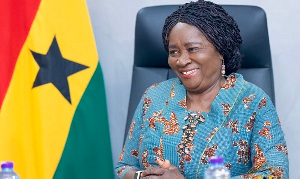A lot has happened in the energy industry in West Africa in recent years that requires the attention of journalists covering energy issues and especially the crisis in electricity generation and supply.
Some experts and stake holders in the industry have often complained that coverage of the sector by journalists has mainly been about which politician or energy producer or distributor has said what, regarding this or that development in the sector.
“Electricity consumers complain about this and they report it. Producers of electricity say this or that, and they report it. Dutifully, they report what the government says about an energy issue and leave it at that. There is little analysis. It is a kind of cut and paste coverage of the sector”, one oil and gas expert has complained.
According to him, whenever consumers protest electricity tariff increases amid poor power supply to consumers for example, “ this protest is reported in the media without inputs from investors, regulators and the government.”
As a result, he argues, the respective concerns of consumers, investors, producers, distributors, environmentalists and regulators are reported separately without any correlation and appropriate analysis of prevailing conditions in the sector, as they affect the diverse interests of all the stake holders.
A fundamental problem is that many journalists think of energy as a single industry whereas it is actually a highly segmented one. Various experts in the industry may have knowledge only about some of the segments of the industry but not about others.
For example, an expert in the electricity sector may be limited in his knowledge about oil or gas, except that they are fuels for the production of electricity. Similarly, petroleum experts may have little understanding of electricity.
If that is the case with even experts in the industry, then journalists who have been covering the energy industry will require specialized skills for reporting the oil and gas sector.
As a result of the ever increasing importance of oil in the global economy, energy issues are increasingly becoming front-page news around the world. Whether an energy story originates from the United Sates, Singapore or Nigeria, it has the power to affect market activities and policy decisions throughout the world.
Mistakes or misrepresentations in a story reported from one country can have immediate ramifications across the global energy industry no matter the geographical origin of the report.
To cover the industry in both an informed and informative way, journalists need to understand important issues and concerns such as the profound changes going on in the energy sector.
They need to appreciate emerging changes in the operation of regulatory systems in the energy sector, the fundamentals of energy economics, environmental law, and even how electricity, gas and other energy systems are put together physically by engineers.
To avoid mistakes and misrepresentations in their coverage of oil and gas once production starts, reporters who cover the energy sector will need to begin to identify and cultivate reliable and knowledgeable sources of oil and gas information. They need to learn the special skills needed for in-depth interviewing of the key players in the industry.
Even more importantly, journalists must develop the capacity for critically analyzing oil and gas news both as export commodities and also as they relate to energy production in the country.
To be able to cover the emerging oil and gas industry efficiently once production starts, oil and gas reporters should be encouraged to seek information about specific oil and gas and general energy issues from the right sources.
The various stake holders in the energy sector have their respective vested interests and concerns: Electricity consumers for example, want to pay tariffs they deem appropriate and some would probably have energy free of charge if it were possible!
Energy sector regulators like the Utility Regulatory Services Commission are concerned with enforcing regulations governing the fixing of tariffs. Environmentalists have their concerns about the impact of energy generation activities on the environment.
Politicians are very sensitive about issues relating to tariffs and the impact of energy production activities on the environment. Investors in energy production and distribution are in the industry to make and protect their profits.
The media therefore needs to be fair and balanced in coverage of the issues relating to the concerns and competing interests of all stake holders in the industry.
Energy sector reporters need to be constantly mindful of their responsibility to provide the public, the government and all the bother stakeholders in the industry with truthful information devoid of ideological and political biases, so that all conflicts in between and among the key players can be resolved.
What the media report about the energy sector has an influence on the opinions and perceptions of the key players of the energy sector-governments, policy makers, regulators and consumers.
To be able to communicate accurately with the public, journalists need to be able to speak the rudimentary language of the energy industry. They need to be familiar with the meanings of words and terms like “grid”, “boiler”, “horse power”, “kilowatt”, “kilowatt-hour”, “liquefied natural gas”, “real time market”, “real time pricing”, “fossil fuels”, etc,
Oil prices keep skyrocketing one moment, and then plummeting the next. New technologies for the production and distribution of energy keep emerging, making it necessary for energy reporters to be more adequately equipped with a better understanding of the ever-changing complexities of this multi-faceted and fast-paced industry.
The dramatic changes going on in the energy industry in West Africa and the rest of the world require that Ghanaian journalists covering the sector are kept constantly abreast with these developments through continues training in reporting and analysis of critical energy issues:
Website: www.sydneyabugri.com/Web
Opinions of Thursday, 28 July 2016
Columnist: Abugri, George Sydney














